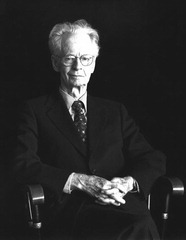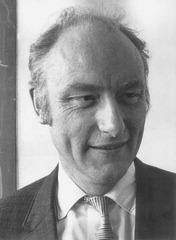 Watson
Watson 
 Watson, John
Watson, John 
 Influences on
Influences on 
 Instinctis
Instinctis 
Instinct. An instinct is a drive encoded in the genes. The term is used in the Freudian model of the mind to represent one of the main driving forces of the psyche (represented by the id), counterbalanced by the social programming of the superego -with the ego trying to do a balancing act between the demands of these two forces, and the demands of external reality.

 Natural
Natural 
Natural. A number of psychologists have been influenced by the natural sciences, either in terms of early training in one of these disciplines, or because the development of their ideas has been influenced by particular models and methodologies employed by these sciences. Major branches of the natural sciences are disciplines such as: • Physics - which studies the principles underlying energy, the structure of matter, and interactions between the fundamental constituents of matter (e.g. quarks). • Chemistry - the science studying the composition, study and properties of substances and their transformations. For example, chemistry discovered that water consists of a combination of the elements oxygen and hydrogen, expressed in the formula H2O. • Biology - the study of life, i.e. any organism to which the term living can be applied. Looks at animals, plants, bacteria and viruses, as well as their interactions. More specialized branches (that have influenced some of the eminent people represented on this CD-ROM, such as Darwin) include: • Botany: the branch of biology dealing with the study of plants, e.g. study of plant structure and function, their geographical distribution and how they can classified. • Natural History: a somewhat old fashioned term these days (though found in the name of the famous Natural History Museum in London), it refers to the study of natural objects (plants, animals, insects etc.), particularly in the field. • Entomology: the scientific study of insects (their classification, ecology, physiology etc.) • Geology: a branch of earth sciences, focusing on research into the structure, origin and composition of the solid part of the earth (e.g. rocks). • Ethology: studies animal societies in their natural surroundings, providing insights into animal social behaviour. Although caution is needed against overly simplistic explanations of the complexities of human social behaviour in terms of animal studies, it can be argued that there are genuine parallels between at least some aspects of human and animal social behaviour, particularly with chimpanzees and bonobos.

 Reference: Cohen, D. (1979) 'J. B. Watson: The Founder of Behaviourism, London, Routledge and Kegan Paul.
Reference: Cohen, D. (1979) 'J. B. Watson: The Founder of Behaviourism, London, Routledge and Kegan Paul. 
 During the summer vacation, he carried out ethological-style research on the behaviour of birds, partly as a means of earning some much-needed extra money. In 1907 Watson moved from Chicago to take up a post of Professor of Psychology at Johns Hopkins University in Baltimore.
During the summer vacation, he carried out ethological-style research on the behaviour of birds, partly as a means of earning some much-needed extra money. In 1907 Watson moved from Chicago to take up a post of Professor of Psychology at Johns Hopkins University in Baltimore. 
 At first he studied philosophy but became somewhat disillusioned with it, switching to the study of animal behaviour for his doctoral thesis. Watson studied the way in which rats learned their way through mazes, and he measured such things as speed and number of errors.
At first he studied philosophy but became somewhat disillusioned with it, switching to the study of animal behaviour for his doctoral thesis. Watson studied the way in which rats learned their way through mazes, and he measured such things as speed and number of errors. 
 John Broadus Watson (1878 – 1958) was born near Greenville, South Carolina, USA, to a poor family. Watson's was a very strongly religious environment, his ancestors being farmers and devout believers: God and the devil were much in evidence in Watson's early life.
John Broadus Watson (1878 – 1958) was born near Greenville, South Carolina, USA, to a poor family. Watson's was a very strongly religious environment, his ancestors being farmers and devout believers: God and the devil were much in evidence in Watson's early life. 
 However, Watson showed signs of revolt, missing Sunday school whenever possible. At the age of 15, Watson was admitted to Furman University, a Baptist institution in Greenville. This was a somewhat unexpected twist to the story since little indicated an inclination to the academic life. Rather, he might have been expected to stay on the family farm. Watson studied a range of subjects including Latin, Greek, philosophy and science, among others.
However, Watson showed signs of revolt, missing Sunday school whenever possible. At the age of 15, Watson was admitted to Furman University, a Baptist institution in Greenville. This was a somewhat unexpected twist to the story since little indicated an inclination to the academic life. Rather, he might have been expected to stay on the family farm. Watson studied a range of subjects including Latin, Greek, philosophy and science, among others. 
 Watson was led to reason that human behaviour might be explained in a similar way to that of rats running mazes, in terms of simple processes such as reflexes. To Watson unobservable mental terms did not help explanation and only confused things.
Watson was led to reason that human behaviour might be explained in a similar way to that of rats running mazes, in terms of simple processes such as reflexes. To Watson unobservable mental terms did not help explanation and only confused things. 
 In 1913 he made public his view that psychology should (a) be an objective science, (b) include only observable behaviour and physiology, (c) avoid mental terms and consciousness and (d) recognize a continuity between human and non-human species. He rapidly achieved national and international fame for his revolutionary proclamation of behaviourism.
In 1913 he made public his view that psychology should (a) be an objective science, (b) include only observable behaviour and physiology, (c) avoid mental terms and consciousness and (d) recognize a continuity between human and non-human species. He rapidly achieved national and international fame for his revolutionary proclamation of behaviourism. 
 Early in his career, Watson was led to ask whether one could suggest the heresy that behaviour can be explained in rat and human without the notion of consciousness? After earning his doctorate, Watson gained a teaching position at the University of Chicago.
Early in his career, Watson was led to ask whether one could suggest the heresy that behaviour can be explained in rat and human without the notion of consciousness? After earning his doctorate, Watson gained a teaching position at the University of Chicago. 
 Alas, Watson's illustrious academic career was terminated in 1920 after the scandal of an affair with a student at Johns Hopkins University. Watson moved into advertising and popular writing. He died in 1958.
Alas, Watson's illustrious academic career was terminated in 1920 after the scandal of an affair with a student at Johns Hopkins University. Watson moved into advertising and popular writing. He died in 1958. 
 In 1895 the Furman clergyman and philosopher, Gordon Moore, taught a course on psychology, which Wat son attended and which attracted him to the subject. In 1900. He enrolled at the University of Chicago as a postgraduate student.
In 1895 the Furman clergyman and philosopher, Gordon Moore, taught a course on psychology, which Wat son attended and which attracted him to the subject. In 1900. He enrolled at the University of Chicago as a postgraduate student. 
Top






